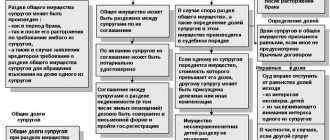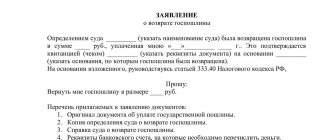Application for divorce - how to file correctly.
Any proceeding begins with the preparation of documents. What you will need:
- TIN;
- identification document;
- marriage certificate;
- a document confirming the presence of common young children.
Now let's look at the options for resolving the issue:
- There are no young children, there is no need to divide the property, we mutually came to an agreement.
Upon arrival at the registry office, you will be given an application form (form No. 8), which will be available below for download. All columns, except nationality (filled in optionally), must be completed. Also, the form is accompanied by a passport of each spouse, confirmation of payment of the state fee and a marriage certificate. The termination of the marriage occurs after thirty days. During this month, either party can change their mind and withdraw the application, refusing the divorce;
- One party decided to divorce, there are young children, the other party is disabled or missing (by a court decision), or is in prison for a term of 3 years or more.
In such a case, the application is filled out according to Form No. 9. The procedure is the same as described above, but in addition to the main documents, you must attach confirmation of the person’s incapacity, his disappearance, or a verdict from the court. An example of the form will be attached below and is available for download.
- Divorce is initiated by only one party, the other party avoids it.
Also, divorce on the initiative of one spouse is possible if it has already been decided who and where minor children will be raised, and issues of property and alimony have been resolved voluntarily. The case can be heard in the magistrate’s court if the value of the property is no more than 20 thousand rubles.
The application must contain:
- Full name and place of residence of the spouses;
- where and when they got married;
- the defendant’s consent to the divorce (if the party does not avoid the registry office);
- information about common minor children and the place where they will continue to live;
- a request for divorce with a detailed description of all aspects (reason, alimony, joint property.)
The above application is accompanied by an annex which must contain:
- a document confirming the validity of the union;
- a document confirming the birth of common young children;
- income certificates;
- list of jointly acquired property;
- a copy of the statement of claim and confirmation of payment of the state fee.
Such cases are considered within a month.
Applications of the same type are considered by district and city courts if the spouses have not reached an agreement on the residence of minor children, alimony and/or distribution of property whose value is more than 20 thousand rubles.
The application itself is no different from a claim in the magistrate’s court; it is filled out and drawn up in exactly the same way as above. It will be considered no more than 2 months from the date of submission. Sometimes the period can be extended to 3 months.
According to the law, a husband cannot divorce his wife during pregnancy and in the next 12 months.
Division in court
If the parties could not agree among themselves on the division of household appliances, then they have a direct route to court. The claim will need to justify why he wants to divide household appliances in this way.
If we are talking about an equivalent exchange for the value of each item, then you need to justify the price of this or that item today. To avoid disputes, it is recommended to take all household appliances to an independent appraiser. He will evaluate each item and give a conclusion.
If the plaintiff wants to take all the equipment for himself and pay monetary compensation to the defendant (or vice versa, wants to give away all the equipment and receive monetary compensation from the defendant), then he needs to do exactly the same thing - visit an appraiser.
The court will take into account all factors and make a decision on the division of household appliances between the spouses. If the parties disagree, they can appeal to a higher court. Property can be divided both during the divorce process and within 3 years after.
State duty for divorce - we calculate it ourselves.
The calculation of state duty is influenced by factors such as:
- whether both parties agree whether you have young children or not;
- How to submit an application: through the registry office or court;
- by whom the application is submitted: one spouse, or two;
- in what order the distribution of common property will be decided.
- In case of consent of both parties and divorce in the registry office, subject to the conditions being met (no minor children, property does not need to be divided, the agreement was mutual), the cost will be 650 rubles for each spouse.
- In the case of a divorce through the court, the state fee is paid twice: for filing an application and for registering the divorce in the registry office after the court decision. It will cost 600 and 650 rubles per person, respectively. If one of the spouses is disabled, declared missing or imprisoned for a period of 3 years or more, then the cost of the state duty will be 350 rubles on one side.
- In the case of a divorce with division of property, the minimum amount per application is 400 rubles (for property < 20 thousand rubles). Also, you will need to pay a state fee of 650 rubles on each side.
If you decide to change your last name after a divorce, an additional 1,600 rubles will be charged, including changing your passport.
If the value of the property is more than 20 thousand rubles, then the calculation takes a different turn:
Payment of the fee is made at the end of the court decision, and not before it begins.
Division of furnishings after divorce
According to Art.
38 of the Family Code of the Russian Federation, all property that was purchased by spouses with common money during the entire period of marriage is subject to division. Property after divorce is divided equally between husband and wife, but under certain circumstances the share may be reduced or increased. There are options in which the division of property upon divorce does not occur:
- a married couple does not have common property;
- A marriage contract is concluded between a man and a woman.
The following are subject to division in a divorce:
- vehicles, including those for which a car loan has been issued;
- housing, including those taken on a mortgage;
- land;
- garages;
- tables, chairs, furniture sets;
- Appliances;
- luxuries;
- products made from valuable types of fur;
- Jewelry.
Naturally, household appliances and furniture are included in the list of joint property. After all, such property costs a lot, and the family sometimes has to save money for a long time to purchase it. But the expression “divide equally” should not be taken literally - equipment and furnishings are difficult to divide into two ideally equal parts without sawing them.
An acceptable option for dividing furniture during a divorce, often used in practice, is to transfer the subject of the dispute to one of the spouses with payment to the other party of monetary compensation equal to half of its price. A less common but still popular story is that a couple sells their property and splits the proceeds in half. But this option is not particularly beneficial for the ex-husband and wife, because used property cannot be sold at a high price, and the amount received will not be enough to purchase something worthwhile.
How to formalize the division of property?
According to the law, common property is considered to be that which was acquired during the existence of the marriage. And it doesn’t matter whose money everything was purchased with. The date indicated on the marriage certificate is the “point of no return.”
But each party will have everything that was acquired before marriage:
- real estate and movable property;
- car or other equipment;
Such things will never become common, and when they “disintegrate”, everyone keeps their own. This also includes any item or funds donated by relatives or inherited.
You can arrange a division of property:
- During a divorce.
In this case, both parties can demand theirs in the statement of claim or in an appendix to it. You can mutually decide who gets what and draw up a so-called agreement on the division of property. In this case, the claim can be terminated at the registry office, in the absence of young children, as we said above.
- After divorce.
After the trial is over, you can breathe easy and still demand your due by filing a claim for division of property. But do not forget that the statute of limitations is 3 years. If you do not make it in time, you will no longer be able to divide the property.
Everything for the sake of the children: when property is not divided equally during a divorce
By law, all property of spouses that they acquired during marriage is considered joint until the contrary is proven. The exception is the personal property of a husband and wife, says family law attorney Elena Ovchinnikova. And all assets purchased during family life are, as a general rule, divided equally. True, taking into account certain circumstances, the court may deviate from the principle of equality of shares, the lawyer notes. In particular, based on the interests of minor children, Ovchinnikova explains: “They, as a rule, are taken into account if the children remain living with a spouse who asks for an increase in the share in the common property.”
To whom the plot, and to whom the cars
One Smolensk family faced this situation. After 11 years of marriage, Anton and Yulia Shcherbinin* had more frequent domestic conflicts, so they decided to dissolve their marriage in court. The Industrial District Court of Smolensk had to decide how to divide the joint property of the spouses: two cars and a plot of land. During their married life, the couple managed to buy an apartment with a mortgage and only a year before the divorce paid off the entire loan for it, but did not have time to register the housing as joint shared ownership with their children. But they had no dispute about this property.
The husband considered it fair to divide the rest of the property equally, but the wife insisted that she should leave 2/3 of the assets, since it was her two minor children who remained to live with her - their common son and Yulia Shcherbinina’s daughter from another marriage. Nevertheless, the first instance considered that the property should be divided in half. So, the wife got a Toyota, and the husband got a Mazda. In addition, Anton Shcherbinin was ordered to pay his now ex-wife 60,000 rubles. for exceeding the cost of his ½ share in the common property and monthly transfer child support in the amount of a quarter of earnings. In addition, the parties to the dispute were recognized as having the right to common ownership of the land in equal shares.
Love and capital: how to keep assets in the family and pass them on by inheritance
The ex-husband was not satisfied with this decision, and she challenged it in the Smolensk Regional Court. The appeal came to the conclusion that in the case under consideration, Yulia Shcherbinina is still owed 2/3 of the property (case No. 33-1304/2018). In support of this decision, the appellate court referred to the existence of personal hostile relations between the parties and the need to deviate from the principle of equality of shares of spouses in common property for the sake of the interests of the children. Another reason for the court was that the ex-husband did not register a share in the apartment for his son, for which he and his wife had recently paid off the loan. The Smolensk Regional Court ruled that Yulia Shcherbinina should take the entire plot for herself, and the ex-husband still must pay her an additional 176,666 rubles.
Anton Shcherbinin, who appealed the appeal decision to the Supreme Court, did not agree with this section. The Supreme Court noted that the appeal did not specifically explain whether the father somehow violated the rights of the child and why, in order to protect the interests of a minor son, it is necessary to award his mother 2/3 of the total property (case No. 36-КГ19-1). In addition, the Smolensk Regional Court recognized the relationship between the spouses as mutually unfriendly, but on this basis mistakenly decided to reduce only Shcherbinin’s share, the judges of the Supreme Court noted. The judicial panel for civil cases also found the reference to the failure to register the son’s share in the apartment to be incorrect. Firstly, Yulia Shcherbinina did not do this either, and secondly, the disputed real estate is not the subject of the dispute.
Taking into account the above points, the trio of judges, chaired by Alexander Klikushin, decided to cancel the appeal and uphold the decision of the first instance. Thus, the Supreme Court considered it correct to divide the property equally in this situation.
“For such cases there are several grounds formed by practice”
Lawyer Asnis and partners Asnis and partners Federal rating. Kira Coruma's Family and Inheritance Law group recognizes that in practice the court may indeed deviate from equality of shares by establishing grounds for this. But in fact, this rule is almost unworkable, the expert states: “There are no stable approaches in judicial practice and criteria under which such a provision could be applied.” And such a deviation is a right, not an obligation of the court, notes Victoria Pinkhasova from Aronov and Partners Aronov and Partners Federal Rating. group Family and inheritance law group Pharmaceuticals and healthcare group Criminal law group Dispute resolution in courts of general jurisdiction Company profile.
According to her, the rights of children when dividing jointly acquired property are not taken into account by the court without good reason. And such a derogation is applied most often in relation to movable property that was acquired specifically for the needs of the child, notes Nadezhda Popova from Pavlova and Partners Pavlova and Partners Federal Rating. group Family and inheritance law group Insurance law group Private wealth management group Bankruptcy (including disputes) group Arbitration proceedings (major disputes - high market) Company profile. Nevertheless, if we analyze the positions of the courts in similar cases, we can identify several reasons for such situations, lists Alina Laktionova from Mitra Mitra Regional Rating, who specializes in family disputes. group Tax consulting and disputes group Arbitration proceedings group Bankruptcy (including disputes) group Land law/Commercial real estate/Construction 10-11th place By number of lawyers:
- presence of several minor children;
- disabled child;
- low income of the parent with whom the child lives;
- non-participation in the upbringing and maintenance of the child by the second parent;
- parent's identity.
There is no answer on how to properly divide property during a divorce. After all, family law is the most “emotional” law. It is unlikely that the advice “register the purchased apartment in your brother’s name” can be considered correct. We can highlight a couple of tips: do not issue a general power of attorney for your spouse unnecessarily under the pretext “it will be more convenient,” and also, when signing any consents or guarantees, read their text in full, understanding all the possible consequences.
Alina Laktionova
In any case, the mere cohabitation of one of the parents with a minor child does not give him the right to a larger part of the marital share when dividing jointly acquired property, Ovchinnikova summarizes.
What goals are usually pursued by parties in cases of division of common property?
1. Exclude part of the disputed property from the division. The parties argue and prove that such property never existed, or one of the spouses sold it long ago in the interests of the family, stole it, or it was lost in some other way, Ovchinnikov gives an example.
2. Reduce the spouse’s real share in the common property. To do this, the opponent proves that the spouses have common debts that are repaid by only one family member, or underestimates or overestimates the value of certain assets, depending on the situation, warns Ovchinnikova.
* – the names and surnames of the participants in the case have been changed.
- Alexey Malakhovsky
- Supreme Court of the Russian Federation
What is considered common and subject to division
This is determined by the Family Code, its provisions are used by judicial practice.
Joint ownership is not only about apartments or other types of real estate:
· salary;
· other income received from the labor or entrepreneurial activities of the parties - salaries, pensions, bonuses, bonuses;
· profit, assets – results of individual entrepreneurs’ work, real estate/movable property, shares, LLC shares, shares;
· bonds, checks and other securities received by participants in marriage - as a gift, after transactions, completed projects;
· intangible assets – money accumulated and stored in accounts, the right to receive an apartment/car;
Find out important things: Marriage agreement for an apartment - before and during marriage
· remuneration received for the use of a patent, copyright or other intellectual property.
It does not matter to whom the property was originally registered. Everything will automatically be considered joint.
What is not shared
A citizen can keep property if it:
1. Received as a gift, was inherited or transferred as a result of another gratuitous transaction. Moreover, the period of commission is not important.
Find out important things: Deed of gift between spouses - how to draw it up correctly
Donation implies sole use - the gift is drawn up by the person specified in the agreement.
2. Real estate purchased by a person before marriage.
3. Ownership is confirmed by an agreement drawn up by the spouses in advance.
Everything in the legislation is laid out logically and it seems that adults can separate peacefully. In practice, each case is individual. Some generously leave everything and go “nowhere,” while others, on the contrary, fight for every little thing, not wanting to give anything to their other half.
If there are children
Often, dividing a house strictly according to the size of the share is not technically feasible, so the court relies on the established order of use and the interests of the children.
The very fact that a child lives in the house does not automatically increase the share of the parent living with him, although this may in fact cause the court to deviate from the principle of equal share, especially if the parent living with the children does not have high income or bears the burden of supporting them alone.
A parent living with a disabled child often becomes an argument in favor of increasing his share to 2/3 or more. It does not matter whether the child requires expensive treatment - the very fact of disability indicates the high costs of the parent and his limited ability to work in connection with the provision of constant care for the child.
Sample claim for division of property after divorce
Drawing up a lawsuit is carried out according to certain rules. The document must include:
- name and address of the authority to which it is submitted;
- basic passport data of the plaintiff and defendant;
- description of the main essence of the claim (what the plaintiff sees as a violation of his rights);
- proposal for division indicating shares;
- references to regulations that guide the plaintiff in his claims;
- calculation of the amount of claims. It is necessary to produce it. Firstly, it is required to determine the amount of the state duty, and secondly, without it the case simply will not be considered;
- plaintiff’s signature with transcript and date of writing;
- list of documents that are attached to the claim.
For correct compilation on our website, you can familiarize yourself with it if necessary.
Required documents
In order for a claim to be accepted for consideration, copies of the following documents must be attached to it:
- receipt of payment of state duty;
- passports of all participating parties. If the section affects the interests of children under 14 years of age, then birth certificates will be required;
- documents confirming ownership of property;
- results of an independent examination of the value of the property. It is necessary if there are difficulties in determining the value of the received share.
This list may optionally include other documents that confirm the plaintiff’s case. For example, purchase receipts, certificate of expenditure of maternity capital funds, etc.
State duty
Before submitting the application, the plaintiff must pay the state fee. Its size is not fixed. For calculations you will have to resort to Art. 333.19 Tax Code of the Russian Federation. The total amount will directly depend on the size of the requirements. Its minimum size is 400 rubles, and the maximum is 60 thousand rubles.
Joint property
The main legislative act regulating family relationships and their dissolution is the Family Code. According to its provisions (Article 34), spouses have equal rights in relation to everything they acquired during their cohabitation.
You can share:
· real estate objects;
· cash savings;
· furniture;
· transport;
· small items
In practice, people share “forks and spoons”, not wanting to give in. An exception that allows you to change the procedure is a marriage contract.
It is drawn up to regulate property relations and allows you to determine in advance the procedure and rights of both parties. If they are willing to follow the terms of the agreement.
How long after a divorce can property be divided?
If necessary, former spouses can begin dividing property several years after the divorce. Even after twenty if desired. Especially if they intend to carry it out without involving the court. Family law does not regulate the issue of timing.
But for the implementation of the judicial process, time frames are important. For example, if after the divorce the spouses continued to use the property, then in the future they have the right to file a claim for its division at any time. Another thing is that there is no point in delaying the process. The more time passes, the more difficult the separation becomes. Primarily due to the loss of evidence.
But if, after a divorce, one of the spouses stops using the property and maintaining it, then he must be prepared to refuse to consider the case after a significant period of time.
How is a house divided during a divorce if the owner is the husband?
The procedure for dividing a house, if the owner is the husband, is no different from the process of dividing property in other cases.
According to the Family Code, the formal owner of a residential building is not of particular importance, since the court will determine the circumstances of the acquisition of the house, and not the nominal owner according to the papers.
If the house is purchased with the common funds of the spouses, it will be subject to division by agreement or in a lawsuit, as described above.
Tricks and tricks for preserving property
If a married couple cannot resolve a property issue peacefully, the husband or wife begins to think about how to preserve property during a divorce and what tricks they can resort to. Legal practice knows the following techniques and tricks that spouses use:
to preserve your property:
- Do not purchase an apartment or house for young children - if the wife will be the child’s guardian until adulthood, she can use this property.
- Purchase a home before marriage to be the sole owner.
- Carry out any major repairs from the family budget, in order to later challenge the agreement of donation of an apartment that was given to the spouse.
- Do not register housing in the name of relatives due to tax evasion, so that in the event of a divorce you will not be left without anything.
- Make all money transfers only in cashless form and keep all documents.
- When applying for a mortgage or a large loan, an agreement with the bank should be concluded for both spouses.
To avoid conflicts when parting and dividing common property, you should always remember that any problem can be resolved peacefully, without resorting to various tricks and tricks.
Civil marriage
According to the law, this is an ordinary union concluded in the registry office. Couples living without registration are considered simply “cohabitants” . The Family Code does not apply to them. After all, initially these people avoid formalizing relationships so as not to subsequently take on any obligations. Accordingly, their rights are also not defined.
They can run anywhere and the amount of acquired property will be divided according to the provisions of the Civil Code. To whom it is issued, he receives .
The second party will need to document the amounts invested to purchase real estate and other aspects. For example, carrying out repairs. Therefore, lawyers advise couples to sign. Even in the event of the death of a cohabitant, half of him will not be able to defend his rights, in comparison with the official widow , who receives half - the remaining part will go to the children. Only the rights of common children are unconditional. It doesn't matter whether their parents are married or not.
The main thing is that the status of the father and mother is confirmed, their data is on the certificate. If not, it’s easy to prove the relationship using DNA. On the contrary, the position of the cohabitant is precarious, his legal status is unclear.
Algorithm for recognizing the transaction of one of the spouses as invalid
It is clear that when disposing of common family property, the consent of both spouses is required. But sometimes the other half forgets about this and infringes on the rights. Even if something is purchased in the name of one of the spouses, this does not cancel the joint ownership regime. Often, when making transactions, one assumes the consent of the other. But all transactions with state registration and the involvement of a notary require written consent, otherwise the court may declare the transaction invalid. How to invalidate an agreement: 1. Draw up a substantiated claim indicating such requirements 2. File it in court (usually a district court), the defendant is a second family member. It is better to do this within a year from the date of the transaction. 3. Come to court, motivate and prove your position
The procedure for dividing joint property by former spouses
If the spouses are already divorced and want to divide property, then they will have to follow the standard scheme, with the exception of a number of points. This means that the RF IC (Article 38) gives them the right to enter into an agreement or file a claim in court.
Partition on a voluntary basis
Art. 38 of the RF IC establishes that both during the existence of an official marriage and after its breakup, spouses have the right to resolve the issue of division by drawing up a settlement agreement. Neither the RF IC nor the RF Code of Civil Procedure provide rules for drawing up an agreement. In this matter, it is worth starting from the Resolution of the Supreme Arbitration Court of the Russian Federation No. 50 (dated July 18, 2014). According to this document, the agreement must comply with the following principles:
- all its conditions are subject to the norms of Russian legislation;
- it does not violate the rights of third parties. For example, it cannot stipulate the conditions for dividing the property of the couple’s minor children;
- the terms of the agreement are feasible, and it is impossible to interpret them in two ways.
On our website you can, which complies with all legal standards.
All divided property must be described in the agreement in as much detail as possible. Spouses have the right to divide it in any shares, and not in half. Notarization is required for the document. If the rules of law were violated when drawing up a document, then one of the spouses or a third party receives the right to declare it illegal with the help of a court decision.
Division of property through court
It so happens that the division of jointly acquired property in 2021 through a peaceful settlement is impossible. Art. 38 of the RF IC provides each of the former spouses with the right to go to court. To do this, you need to draw up a statement of claim with the requirements and pay the state fee.
Is it fair to divide property after a few years?
Not really
When dividing property, the judge will adhere to the principle of equality of shares (Article 39 of the RF IC). There are several section options:
- Spouses establish rules for the use of common property together.
- The property is sold, and the proceeds are divided between the spouses.
- One of the spouses receives ownership of the property, paying the other a monetary compensation in the amount of half the value of the property.
- The property is physically divided into two parts. If we are talking about cash savings, then this option is easy to implement. The division of an apartment in kind has a number of features.









